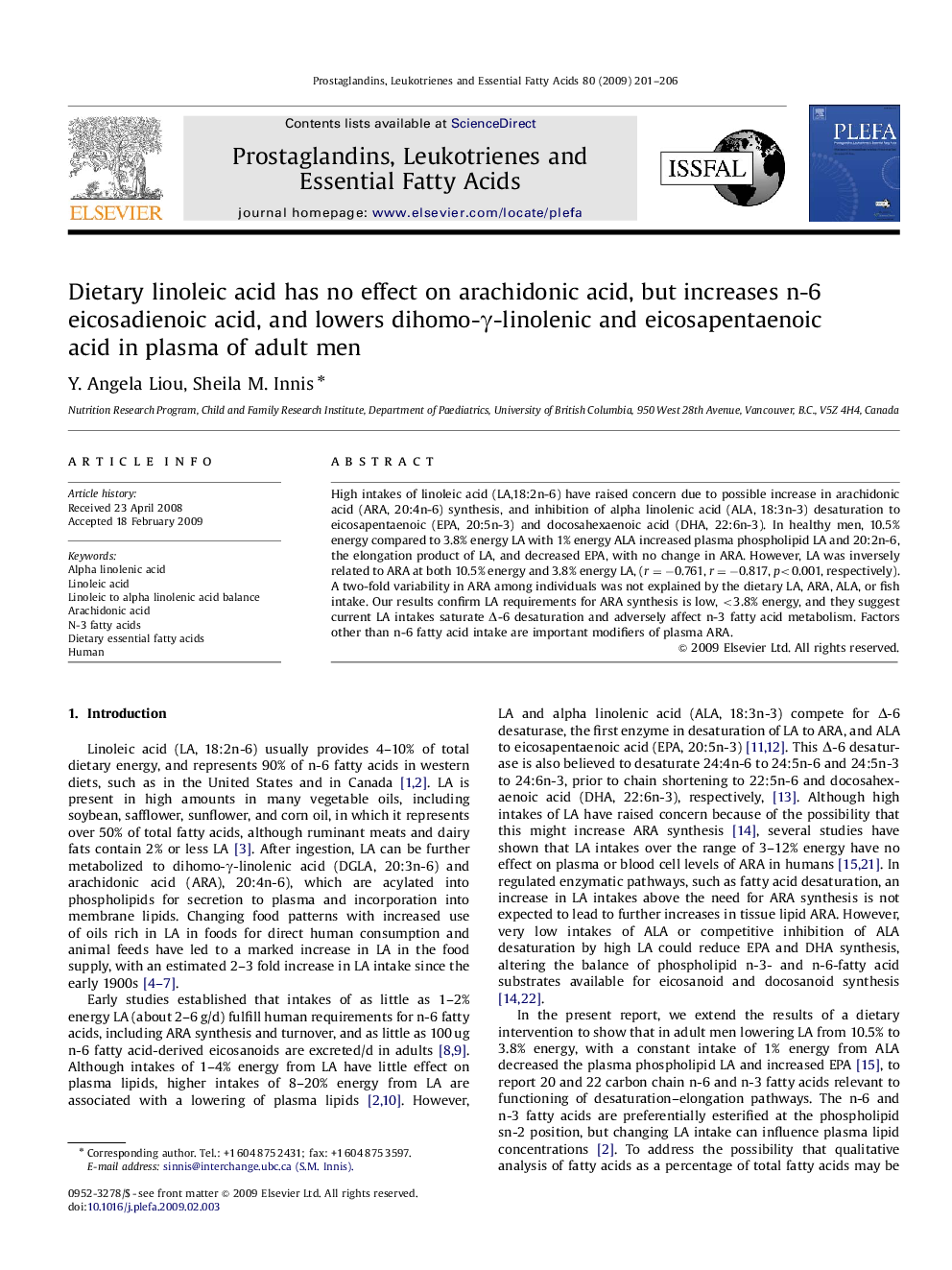| کد مقاله | کد نشریه | سال انتشار | مقاله انگلیسی | نسخه تمام متن |
|---|---|---|---|---|
| 2778099 | 1152787 | 2009 | 6 صفحه PDF | دانلود رایگان |

High intakes of linoleic acid (LA,18:2n-6) have raised concern due to possible increase in arachidonic acid (ARA, 20:4n-6) synthesis, and inhibition of alpha linolenic acid (ALA, 18:3n-3) desaturation to eicosapentaenoic (EPA, 20:5n-3) and docosahexaenoic acid (DHA, 22:6n-3). In healthy men, 10.5% energy compared to 3.8% energy LA with 1% energy ALA increased plasma phospholipid LA and 20:2n-6, the elongation product of LA, and decreased EPA, with no change in ARA. However, LA was inversely related to ARA at both 10.5% energy and 3.8% energy LA, (r=−0.761, r=−0.817, p<0.001, respectively). A two-fold variability in ARA among individuals was not explained by the dietary LA, ARA, ALA, or fish intake. Our results confirm LA requirements for ARA synthesis is low, <3.8% energy, and they suggest current LA intakes saturate Δ-6 desaturation and adversely affect n-3 fatty acid metabolism. Factors other than n-6 fatty acid intake are important modifiers of plasma ARA.
Journal: Prostaglandins, Leukotrienes and Essential Fatty Acids - Volume 80, Issue 4, April 2009, Pages 201–206